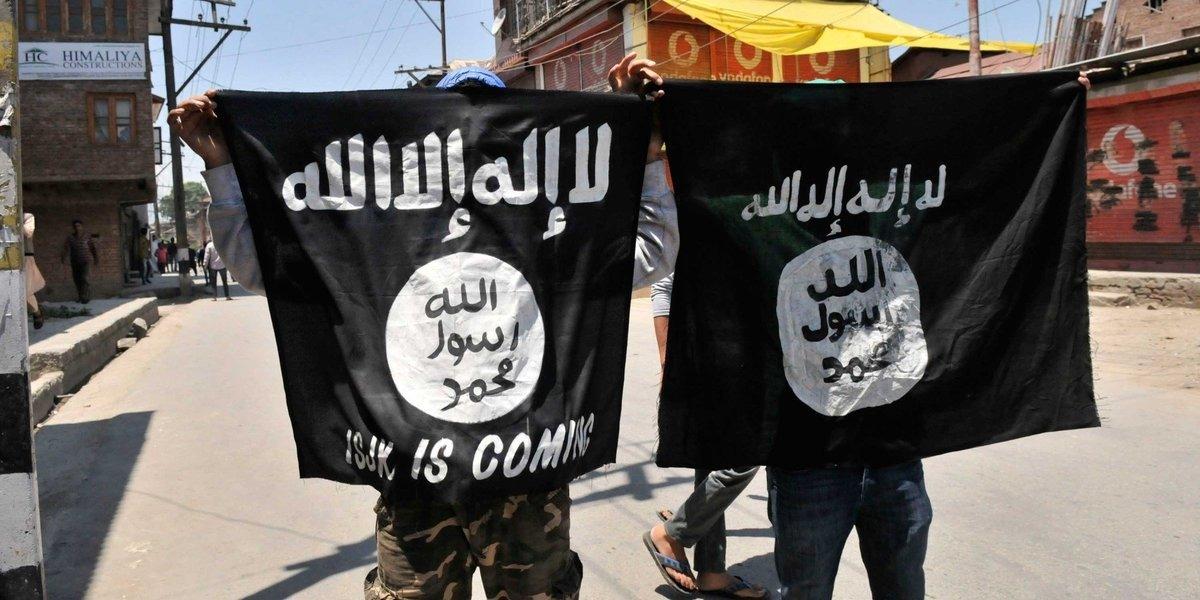
Hong Kong: The Islamic State (ISIS) has adopted a 'systematic silence' on the Xinjiang Uyghur issue and Chinese atrocities on the community, said a recent commentary in the foreign policy journal War on the Rocks.
Despite the US labelling Chinese atrocities on Uyghur as "genocide", terrorism experts are split over Islamic State’s (ISIS) silence on the issue, reported South China Morning Post (SCMP). Some suggest it is a strategic move, as ISIS prioritises ending the US military presence in the Middle East and South Asia.
Maria Siow in her opinion piece in SCMP wrote that China had been continuously repressing Uyghurs by banning long beards and veils and setting up "concentration camps" (termed by Beijing as "re-education camps", aimed at imparting vocational skills and rooting out extremist thoughts).
Some terrorism experts say that Beijing's repressive state apparatus and surveillance methods in the Xinjiang region have made it too difficult for ISIS to recruit from China, reported SCMP. Yet others warn the 'systematic silence' as a temporary thaw, caused perhaps by the collapse of the terror group's self-declared Caliphate defeated by a US-led coalition at Baghuz in March 2019, reported SCMP.
Experts warn that though ISIS has weakened, it remains a potent force in command of an estimated 10,000 fighters and insurgent cells and affiliated groups throughout the region. In other words, it might just be reorganising, rebuilding and biding its time.
A Middle East analyst Elliot Stewart noted the terror group's silence in his piece published in War on the Rocks and he observed that the terror group had "almost entirely ignored the plight of the Uyghurs," and it was difficult to square with its "self-appointed role as violent defender of Muslims everywhere".
Stewart pointed out back in 2017 that ISIS had taken provocative steps against China, including producing a video featuring Uyghur foreign fighters training in Iraq and pledging to shed "Chinese blood like rivers to avenge the oppressed", and executing two Chinese teachers abducted in Pakistan's southwestern Balochistan province.
But since then, the terror group has been silent on the Chinese atrocities against the Uyghurs. Stewart concluded that ISIS appeared to have abandoned the issue to prioritise its fight against the US. "Islamic State seems to have determined that a less provocative approach to China is more advantageous," he wrote.
"Specifically, the group believes an unprovoked China can play a constructive role in achieving an overriding objective: ending the US military presence in the Middle East and South Asia." Stewart added: "The overriding reality for the Islamic State is that the US today maintains 60,000 troops in the Middle East while China does not." The estimated 2,000 Chinese troops in Djibouti - Beijing's first overseas military base - had done little to "alter this fundamental imbalance", he said.
"The Islamic State further understands that an unprovoked China is deeply uninterested in taking on the responsibilities of regional security provision, even in a post-US regional order."
Meanwhile, Raffaello Pantucci, a senior associate fellow at the London-based Royal United Services Institute, agreed that ISIS was more focused on getting the US out of the region but this did not mean that ISIS was "strategically choosing to not target China". Pantucci said it was wrong to infer from the relative silence that ISIS did not support the Uyghurs.
Another possibility, said Nodirbek Soliev, a senior analyst at the International Centre for Political Violence and Terrorism Research in Singapore's S Rajaratnam School of International Studies, was that ISIS saw China as less threatening because it had not been involved in military operations against it in Iraq, Syria or Afghanistan.
Soliev also pointed out the "river of blood" video, in which ISIS leader Abu Bakr al-Baghdadi in 2014 singled out China as a battlefield to "wage jihad for the oppression" of the Uyghurs in Xinjiang. Propaganda videos featuring Uyghur fighters aimed at recruiting more Uyghurs promptly followed.
But Soliev said that even at its peak in 2014 and 2015, ISIS only had a small group of Uyghur fighters under its command in Syria, and since 2017, ISIS-linked Uyghur militants had nearly disappeared from the online domain. "Since then, there have been no propaganda materials in the Uyghur language and Uyghur fighters have not appeared in any other propaganda videos and photos," Soliev said, suggesting this was because most of them had died in battle.
However, he added that since ISIS lost its stronghold of Baghouz in 2019, the whereabouts of its Uyghur fighters in Syria remained unknown and it was unclear if ISIS was still actively recruiting from the ethnic group.
Sumit Ganguly, a distinguished political science professor at Indiana University, Bloomington, and co-editor of The Future of ISIS? said ISIS was unlikely to have stopped recruiting Uyghurs. Rather, given China's vast surveillance capabilities, it was more likely ISIS was finding it difficult to recruit from Xinjiang.
Like others, he said that while China's policies were "repugnant" to ISIS, Beijing was "not its immediate enemy". But that, he warned, may change. "ISIS, for the moment, remains focused on the US. However, as China's footprint expands, ISIS will pay greater heed," Ganguly said.
However, experts believe that even if ISIS is ignoring China, for now, to concentrate on its greater foe in America, as China's influence grows the terror groups equation could change, said the article writer Maria Siow.
Pantucci said a longer-term concern for ISIS was that China would emerge as an "oppressive, invasive power" in the Middle East that would prevent the group from achieving its goal of building a global caliphate.
"ISIS worries that China will start to displace the US as the major supportive power in the region towards governments that are thwarting the groups' ability to achieve its goals," Pantucci said.
